EFdeN is one of the most well-known student NGOs in Romania that works in the field of sustainability, having over 10 years of experience. Aiming to transform the cities we live in for the next generations, we have started the ESC project, which will allow visitors to experiment what it would be like to inhabit a city like this. We follow the SDG's proposed by the UN for 2030. We are showcasing elements of a smart and sustainable city by representing 8 of these components in physical format.
NEB Prizes 2023: All Applications
Filter by
Applications (1419)
Showing results 311 to 320
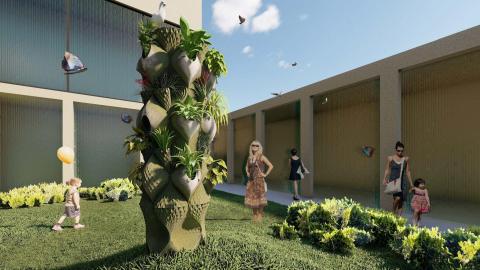
Habitat is a clay 3D-printed modular system that enhances urban environments for diverse species of flora and fauna. The system, which consists of sculptural pieces, addresses the loss of biodiversity and rise in temperature in cities caused by the lack of green spaces and empathy towards other forms of life. By using underutilized spaces in the city and populating them with these modules, Habitat creates a habitat for life to thrive.
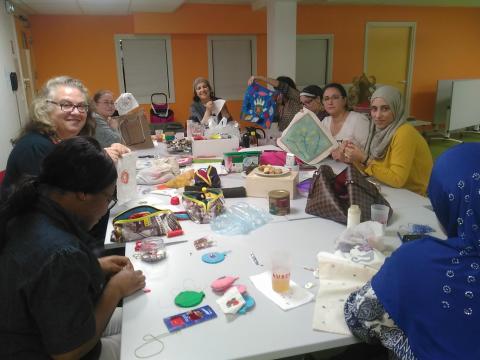
From 2014 to 2020 the association Auberfabrik, drives an ambitious project of women empowerment mobilizing traditional textile handcraft culture. The association is based in a french city of Paris suburb, challenged by poverty and immigration. The collective embroidered work focus on inspiring women figures and totem plants and ended in an exhibition in the city hall. Sharing moments of embroidery between participants, (mostly women) build for them a strong sense of community belonging.
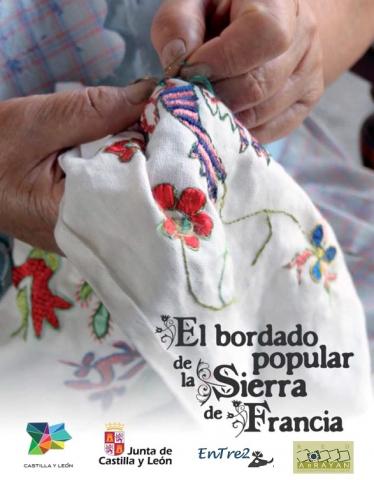
The EnTre2 Plan is based on the recognition of the intercultural identity inherited from Mediterranean and northern European peoples and transmitted by generations of women artisans through the Popular Embroidery of the Sierra de Francia de Salamanca. A cultural syncretism with innovative educational, decorative and embellishment applications of eco-cultural spaces for the benefit of the host communities and the related socioeconomic sectors of cultural tourism, arts and crafts
Jail is a space ignored by citizens. It is a world apart that only inmates, police officers, and workers know, suffering from complex and slow internal dynamics. ACTS is a pilot project for activating sport in prison as a tool for inclusiveness. Actions carried out: hard and tactical sustainable modification of spaces improving safety and aesthetics, promoting motor activities, monitoring of psychophysical health, codesign of narratives, production of multimedia content about sport and prison.
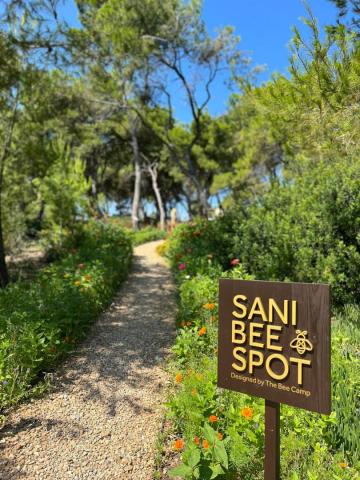
The Bee Spot @ SANI is a 120m2 garden-oasis for biodiversity providing exactly what wild pollinators need to thrive: food sources combined with habitat. At the same time it creates an amazing opportunity for education of visitors of all ages through the experience of immersive educational programs. The Sani Bee Spot is an innovative, sustainable and inclusive bee-friendly garden consisting of 7 stations, dedicated to the life of bees, the most important pollinators in the EU.
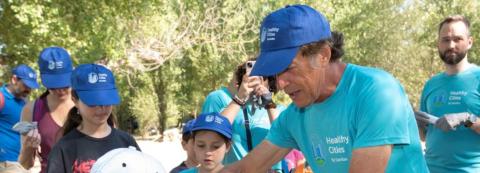
Healthy Cities is a program to create healthier cities and citizens. Sanitas invites employees of large companies and individual citizens to participate, with the aim of promoting healthy lifestyles and encouraging the creation of healthier and more sustainable urban environments.
It is, therefore, a program to raise awareness about what the cities of the future should be like, sustainable and healthy.
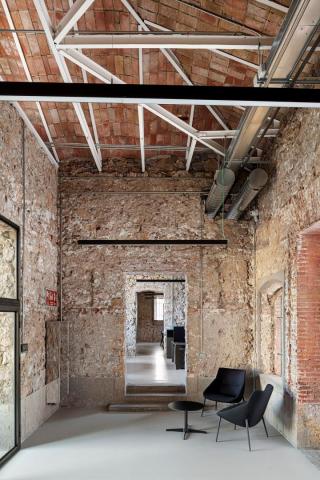
El Roser Social Centre is a pioneering facility in Spain, designed to bring together in one place the social services of Reus, especially those aimed at vulnerable people. It offers a social canteen, temporary accommodation, food bank, and job placement workshops. The project has led to a paradigm shift in the management of the city’s social services, with more effective collaboration between public and private agents, and becoming integrating into the neighbourhood in which it is set.
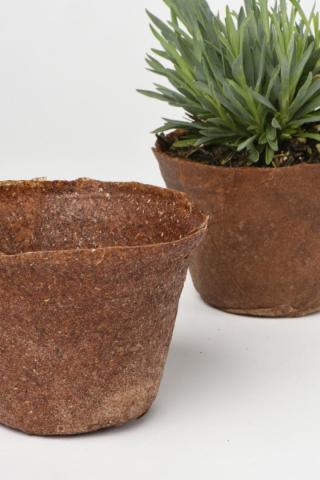
A Matter of Fruit develops natural materials from local industrial juice press residues (also known as pomace), mainly using apple waste. This juice by-product is transformed into flexible films which offer a non-toxic alternative to synthetic materials and fossil-fuel based plastics. The new material is fully compostable and recyclable. In this way the initial pomace cycle is being extended and enables the matter to circulate further, replacing harmful linear systems.
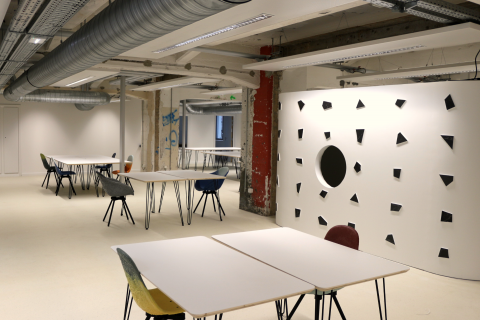
Kaleidoscoop is a cross-border third-place cooperation project open to all for working, doing business and consuming differently. It brings together some 50 partners, including stakeholders in employment, the Social and Solidarity Economy, economic development and social innovation, who work together to come up with new services and activities for the territory and its inhabitants. Kaleidoscoop’s core activity is working for ecological, economic and social transition.
